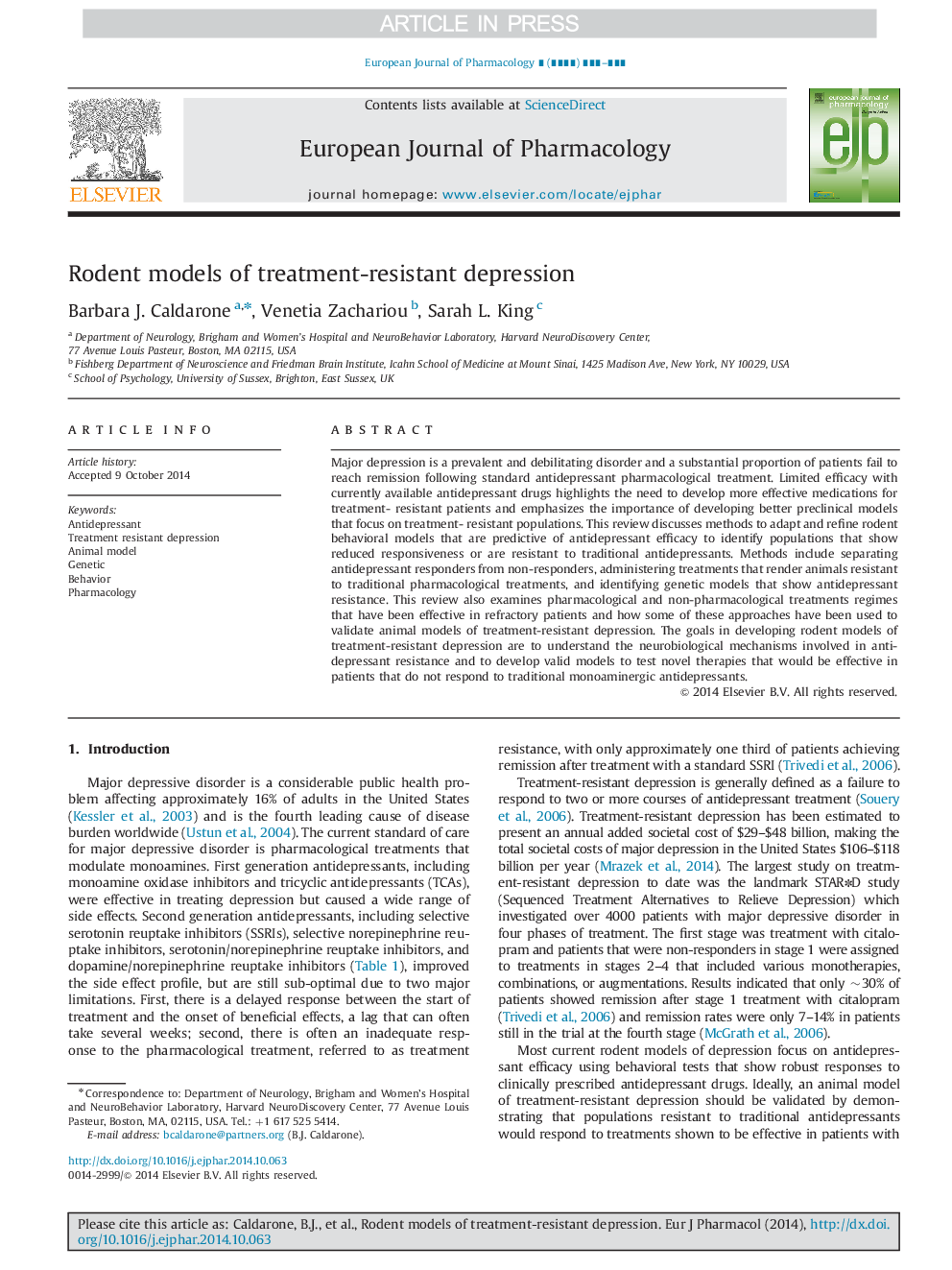| Article ID | Journal | Published Year | Pages | File Type |
|---|---|---|---|---|
| 5827457 | European Journal of Pharmacology | 2015 | 15 Pages |
Abstract
Major depression is a prevalent and debilitating disorder and a substantial proportion of patients fail to reach remission following standard antidepressant pharmacological treatment. Limited efficacy with currently available antidepressant drugs highlights the need to develop more effective medications for treatment- resistant patients and emphasizes the importance of developing better preclinical models that focus on treatment- resistant populations. This review discusses methods to adapt and refine rodent behavioral models that are predictive of antidepressant efficacy to identify populations that show reduced responsiveness or are resistant to traditional antidepressants. Methods include separating antidepressant responders from non-responders, administering treatments that render animals resistant to traditional pharmacological treatments, and identifying genetic models that show antidepressant resistance. This review also examines pharmacological and non-pharmacological treatments regimes that have been effective in refractory patients and how some of these approaches have been used to validate animal models of treatment-resistant depression. The goals in developing rodent models of treatment-resistant depression are to understand the neurobiological mechanisms involved in antidepressant resistance and to develop valid models to test novel therapies that would be effective in patients that do not respond to traditional monoaminergic antidepressants.
Related Topics
Life Sciences
Neuroscience
Cellular and Molecular Neuroscience
Authors
Barbara J. Caldarone, Venetia Zachariou, Sarah L. King,
